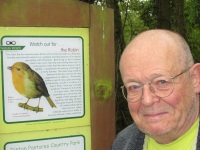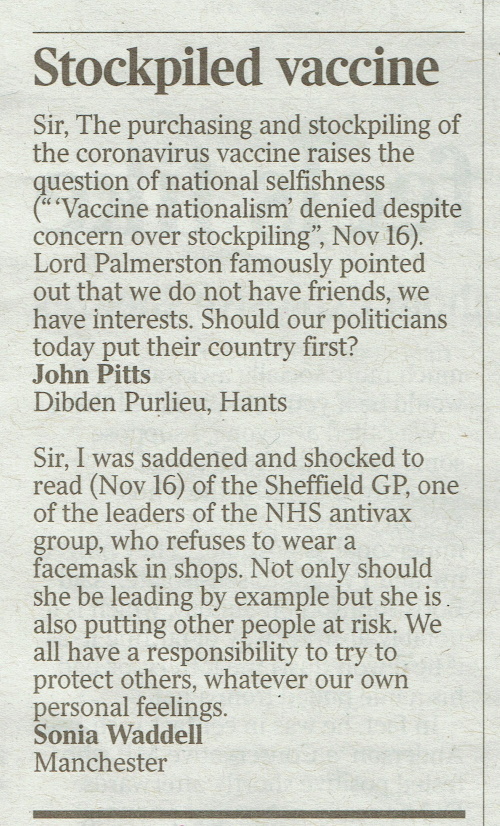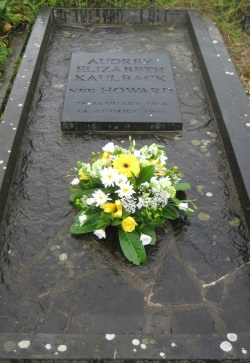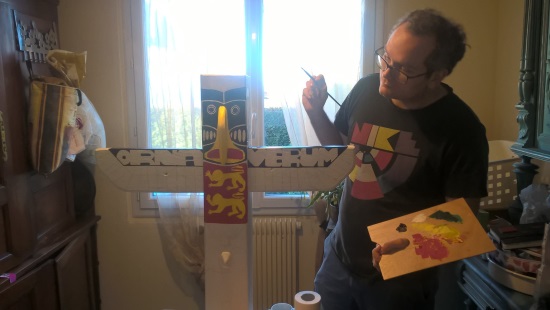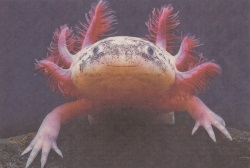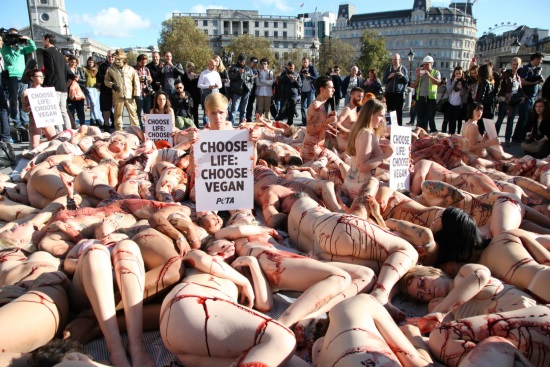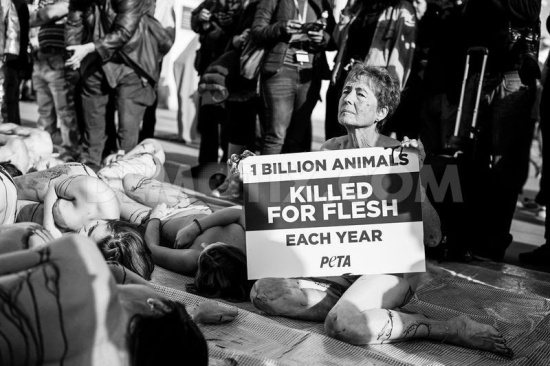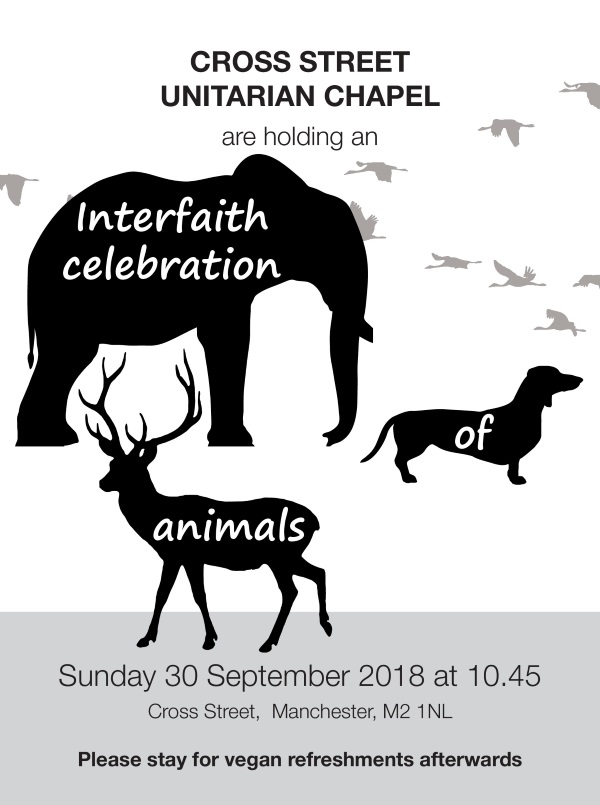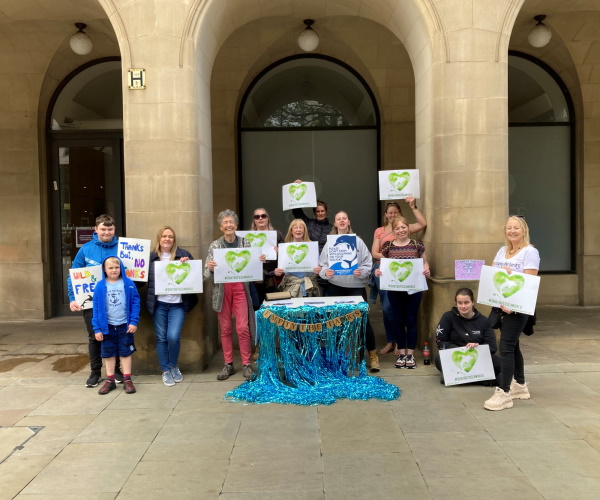Why is it called OrnaVerum?
It's a coded reference to my surname – please see About / Personal.
What's it for?
It began as a sort of vanity project, to publicise some really good research (that's my ego unleashing itself) done during my postgraduate (1967 / 1971) and postdoctoral (1972 / 1976) career in Theoretical Chemistry – please see About / Education, Academic / Manuscripts1, 2 and Academic / Programs1, 2.
Why put this academic stuff on the internet?
Because it was never submitted in final form for publication in any of the appropriate journals relating to Physical Chemistry or Chemical Physics – please see Academic / Publications1, 2.
Is there anything else more interesting?
Yes, there are some nice photographs – please see About / Personal. And a Family unit is now [Aug 2012] materialising (see Charivaria below) – there's a lot of quite surprising stuff lurking in the archives of both my own and my wife's backgrounds – particularly hers, I must admit! And in each generation of every family an effort should be made to continue the narrative for the benefit of all who follow on.
That research was all a long time ago – is it still relevant?
That I can't readily answer, as I left the world of research for ever in 1976. It was highly regarded at the time by people whose opinion I respected and valued – please see About / Education.
A lot of it may well have been rediscovered, and published elsewhere. I would still like, however, to lay claim to priority – the El Dorado of scientific research.
Whilst preparing content for my Web Wizard (please see About / Web Wizard) to work his magic on, I have indeed become aware of subsequent publications – please see Academic / Manuscripts / Further Links.
It is also worth remembering that the dazzling advances in computer processing power and memory capacity, plus the advent of parallel processing and optimising compilers, have rendered some of the 1970's preoccupations with programming efficiency and economy rather delightfully archaic. It was only shortly before my departure in 1976 that the working memory of the Rutherford Laboratory IBM 370/195 was upgraded to (nearly) one megabyte (sic).
The theory is too intricate to bother with, but the programs sound useful – are they available?
That's not easy to say yet. It is just possible that the source-code has survived on IBM 370 magnetic tape backup. But even if I succeed in locating it, the tape may no longer be readable – it may have physically degraded, and anyway the hardware required to read it may no longer be available. It's ironic that Sumerian clay tablets from thousands of years ago are still perfectly legible, but computer storage media from a few decades back are not.
As an example, consider this brief extract from a recent (28 Apr 2012) issue of a well-known magazine, and widely echoed throughout the global media:
"In 1086 William the Conqueror completed a comprehensive survey of England and Wales. 'The Domesday Book', as it came to be called, contained details of all 13,418 places and 112 boroughs – and is still available for public inspection at The National Archives in London. Not so the original version of a new survey that was commissioned for the 900th anniversary of 'The Domesday Book'. It was recorded on special 12-inch laser discs. Their format is now obsolete."
Have you done anything else worthwhile?
Professionally speaking, no. My employment from 1976 until early retirement in 2009 was in the ephemeral world of IT, where any footprints in the sands of time are regularly washed away by the tides of technological change.
So it's downhill from here to the grave, is it?
In a manner of speaking, yes. But the empowering capabilities of the internet suggest that I may very well surprise myself!
[And indeed since that tentative prophecy (ca Jul 2011), the Family has played Achilles to the Academic tortoise though there is much to add to the latter unit in retrospect, with the advantage of 40+ years' hindsight.]
Charivaria
I had thought of calling this section Miscellania, but somehow that sounds slightly dismissive. But Charivaria exactly expresses the sort of content intended – named for the Charivaria page of the magazine Punch (aka The London Charivari) a generation or two back, in which news items of the day would be commented upon in a light-hearted way.
Statistics
(18 Jun 2012) Very detailed analysis of website usage are available from the Google Analytics facility, and they make very encouraging reading as regards OrnaVerum. In brief, between the link-up with Google Analytics on 29 Jan 2012 and today, the headline figures are that:
- Over 150 unique visitors have visited the site.
- Over 5 pages have been viewed per visit on average.
- Over 6 minutes have been spent on-site per visit on average.
- Over 57% of all visits have been return visits.
And I'm always happy to receive Like (or even Don't Like) messages via the Contact option.
(4 Jul 2012) A cumulative monthly record of visitor statistics is now accessible at About/Website, and the month-on-month growth of the new unique visitors figure is rather impressive – long may it continue!
(12 Sep 2012) The visitor figures for August are now on view and record the steady growth in OrnaVerum's global profile – a total of 219 unique visitors in our first seven months of statistics, from countries including Australia, Belgium, Canada, China, France, Germany, Japan, the UK and the USA.
(5 Feb 2013) The visitor figures for January are now on view and record a satisfying acceleration in OrnaVerum's viewings – the highest-ever monthly figure (76) for new visitors – and a year-on-year total of 500 unique visitors overall from 1 Feb last year to 1 Feb this year. Eboracus and I are going to put the kettle on and make a pot of tea to celebrate.
(16 Jan 2014) There's been a serious malfunction in the Google Analytics facility whereby a headcount of Unique Visitors to Ornaverum has been maintained since Feb 2012. We're unable to produce our usual monthly analysis for Dec 2013, or indeed for Jan 2014. Although statistics resumed yesterday, uniqueness can only be reckoned relative to that new basedate (as all access to historical data has been lost), and it seems highly likely we'll have to start an entirely new spreadsheet …
(6 Apr 2018) Over the past month or two I've noticed that there's been a disjunction in Google Analytic's figures. Statistics of any sort are never Holy Writ or even wholly right, but inconsistency is a cardinal sin. I've tried opting to retain their previous algorithm, but to no avail. So, retrospective to 1 Jan 2018, the figures are now per the new regime, maybe ±50 monthly visits discrepancy to start with, but it's trends that matter anyway.
Ragged Edges
(18 Jun 2012) It's all too evident that the Publications/Postdoc and Programs units of the website are seriously incomplete at the moment. Some of this is beyond my direct control, but some is simply due to unintended delay in acquiring a suitable Fortran compilation capability. I hope to do the deal for a copy of the Intel Visual Fortran Composer / Compiler in the next week or two and get to work on the program source codes that I have already been able to recreate.
(3 Jul 2012) I am now three days into a 30-day trial of this product, as supplied by Polyhedron Software, and have navigated the intricacies of the compilation and linkage procedures – much the same as the late lamented Compaq product, but with an unexpected twist which needed the Intel Visual Fortran Forum to resolve: within six minutes of posting the problem, back came the correct answer. Very impressive.
(10 Aug 2012) I have now evaluated and purchased the Intel Visual Fortran compiler and am already progressing the migration of ANGLIA, my postgraduate opus, and am looking forward to properly completing the Programs/Postgrad unit of the website. Meanwhile my critical take on the life-cycles of programming languages, plus some more immediately useful stuff for prospective Intel VF converts, are summarised in the new Programs/Fortran unit.
Horizons
(29 May 2016) Professor Richard Dawkins belies his habitually goofy expression by being an exceptionally clever professional biologist and eminent polemicist, in which latter role he seems to specialise in ignoratio elenchi (ie going for the wrong jugular). However, as Peter Simple (aka Michael Wharton) once remarked when Hugh Gaitskell said something sensible about the level of public concern and involvement in politics, shrimps might yet learn to whistle and stones deliver sermons. Prof Dawkins has just very sensibly said, as regards the upcoming EU Referendum:
"It is an outrage that people as ignorant as me are being asked to vote. This is a complicated matter of economics, politics, history, and we live in a representative democracy, not a plebiscite democracy. You could make a case for having plebiscites on certain issues ... fox-hunting for example – but not on something as involved as the European Union. This should be a matter for Parliament."
Not that anybody cares, but I agree totally. And not that many people know or care either, the 'pleb' in plebiscite is of a very demeaning origin indeed. The plebeians were the next-to-lowest caste of Roman society, second only to the proletarians who did all the dirty work on behalf of the patricians. The cherubically pink David Cameron is manoeuvering us relatively unlettered plebs and proles into shovelling his own political excrement.
(9 Jun 2017) OrnaVerum has now been moved to a British web-host, for greater assurance of continuity in the post-Brexit world ahead, and also the better to facilitate the legacy arrangements that should be made for a personal (as opposed to corporate) website such as this.
Thomas J Watson Sr used to say (according to Joe Gerratt) that IBM was not just another company, it was an institution, and it was immortal. Maybe he never actually said that in so many words, but of course it is true in principle for any institution – as in the wonderful Brecht/Weill songspiel Rise and Fall of the City of Mahagonny, where one of the characters remarks "Men may come and men may go, but bizness is immoital". OrnaVerum has more modest aspirations, but would like to feel that it will certainly outlast its personal origins.
(10 Mar 2018) Eboracus has been increasingly concerned that OrnaVerum, designed as it was for devices with relatively large screens, doesn't format well on mobile phones. He has now (Mar 2018) reviewed ways and means by which each and every page can become automatically scalable to all sizes of device.
The implementation of this will take some time to complete and meanwhile we'd be very grateful if you would notify us (via the Contact option) of any pages that have gone wonky as a result.
(23 Jun 2018) The Labour Party's election manifesto for the June 1983 General Election was described as the longest suicide note in history, as it had been put together by the Trotskyite faction of the party, who spelt out a neo-Soviet future for Britain's economy and social institutions (and, incidentally, leaving the EEC!). The electorate took one look at it and shied away like frightened horses.
On voting day, 9 Jun 1983, Conservatives took 42.4% of the votes, Labour 27.6% and LibDems 25.4%, on a 72.7% turnout.
At the EU Referendum, 23 Jun 2016, the Leave option took 51.9% of the votes, the Remain option 48.1%, on a 65.4% turnout. So 33.9% of the electorate (17,410,742) voted to leave, and 31.5% (16,141, 241) to remain.
The most momentous vote in British history was decided by just 2.4% of the electorate. So much for the majestically proclaimed Will of the People (who anyway mainly cast their Leave votes as protests against economic globalisation, an entirely different issue, though in fact the EU is leading the crusade against the greedy multinationals, towards whom Britain is notably supine, and against uncontrolled immigration, which is also a massive issue with the rest of the EU anyway) – more of a suicide note with 17,410,742 signatories!
The Leave campaign had been spear-headed by Boris Johnson, Ian Duncan Smith, David Davis and Michael Gove. Of these, Johnson has long been nakedly ambitious for the leadership of the Conservatives but is widely held to be a complete buffoon, Smith was briefly leader but proved totally ineffectual and was ousted, Davis stood against David Cameron for the leadership but bombed completely, and Gove torpedoed his 'best buddy' Johnson's bid to oust David Cameron from the leadership shortly after the Brexit referendum by putting himself forward as well. What an unimpressive bunch.
The House of Commons have had several opportunities to oppose or moderate the result of the Referendum, but have fudged it every time, preferring to go with their constituents (to save their seats) and with the Government (to preserve their chances of promotion).
These people come across to the public as grubby self-serving political opportunists rather than guardians of the best interests of the nation. I feel embarrassed even to glimpse Johnson (now Foreign Secretary) and Davis (now Chief Negotiator with the EU up against it in a one-sided contest with the immensely well-informed patrician Michel Barnier) on television news reports regarding our imminent national descent into the abyss.
(27 Oct 2018) The frightening emptiness of the slogan "Let's take back control" has been amplified many times over (if indeed a vacuity can be intensified) since that campaign, by the utter inability of both government and opposition at Westminster to devise a settlement that will be acceptable to both the EU and the people of Ireland. There is total deadlock over issues that should have been explored (by a Royal Commission for example) well in advance of the hapless David Cameron's decision to call a referendum.
Would a sensible electorate really want to be controlled solely by such a collection of clueless incompetents?
(7 Jun 2019) The Russian government are repeating the tired old fable that the Soviet Union was the decisive factor in the defeat of Nazi Germany, and that D-Day (and ipso facto the Western Alliance) was only a side-show. There are so many respects in which this is entirely fallacious, but it serves to reassure the long-suffering Russian people (for whom I have nothing but admiration, but whose patriotism was, I suspect, on behalf of Mother Russia rather than the self-serving Bolshevik regime) that their horrendous wartime suffering was worthwhile, though it was in fact due to 'Generalissimo' Stalin's strategic ineptitude as well as his refusal to believe in the first place the warnings provided by British Intelligence, inter alia, that the Germans would invade.
I'm not a historian, but the facts speak for themselves. And the bottom line, morally speaking, is that Britain declared war on Germany in 1939 on a point of principle (that Germany had invaded Poland – as in fact did the Soviet Union also, as per the Katyn massacre that disgusted even the Germans), whereas the Soviet Union declared war on Germany solely because she invaded them too, a couple of years later!
The Russians call their brush with Hitler "The Great Patriotic War", implying quite correctly that it was solely on their own defensive behalf. Britain fought a wider battle on behalf of the smaller* European nations that were rapidly being enslaved or corrupted by Nazi ideology. The British (and our Empire of the time, and later the Americans) were engaged in the first, Western European, front of the war (which was later joined by the North African and Southeast European fronts and – after 1941 as the Japanese and Americans joined in – the Southeast Asian front as well).
The Soviet Union was merely engaged in the Eurasian, front.** Yes the Russian military effort became ever-increasingly significant, but the Germans were fully extended in many other directions in 1941, without which distractions, they could conceivably have been masters of Moscow by Dec 1941 before 'General Winter' marshalled his full resources!
And, furthermore, the Russians were provided with a constant flow of British intelligence, keeping them fully informed of German intentions. And a steady supply of British military materials and equipment was conveyed by Arctic convoys, continually harassed by prowling German U-boats, to boost the Russian military position. The outcome of the famous tank battle of Kursk was a good example of information provided in advance by the British (though the fate of the valiant crew in the crippled nuclear submarine of that name in 2000 brought the deepest shame and worldwide obloquy upon President Putin in particular and Russia in general).
I think it would be gracious of the Russians to acknowledge these numerous other factors in their victory over the Germans on the Eastern Front, and to soft-pedal their bombastic and vainglorious assertion that 'It Woz the Russians Wot Won The War'.
* It's ironic that these smaller nations then got 'patriotically' swallowed up by Russia at the end of the war as a result of the Yalta agreement brokered by Roosevelt, that well-known geostrategist, creating a no-go area that eventually asserted its independence from Moscow in the late 1980's as the Soviet Union collapsed economically. As of 2019, the bear is on the prowl again, however...
** The Soviet Union did of course declare war on Japan on 10 Aug 1945, after Japanese defeat was already assured by the American nuclear bombs dropped on Hiroshima and Nagasaki on 6 Aug and 9 Aug 1945.
(17 Feb 2020) A vital sign of national seriousness is its self-sufficiency, its ability to make the things it needs, particularly the strategically important ones. Proficiency in the arts and literature, or financial services, on which we seem to pride ourselves unduly, is of no consequence whatsoever in the harsh and brutal world in which Britain was once a major player, indeed the dominant one for a quarter of a millennium.
How can we possibly allow other countries, potentially hostile or even merely indifferent to our best interests, to step in and buy so many of our national assets, or to build so much of our essential infrastructure on our behalf? We giggle foolishly, and then bury our noses in the sand, or our iPhones. Are we Eloi reliant on Morlocks, or can we at least find some rational intermediate status?
A case in point is the offer by China to design and construct the HS2 railway project for us, much more quickly and cheaply (they say) than we could do it ourselves. This is of course immensely attractive to our new political leader whom nobody has ever accused of seriousness or attention to the small print. Fortunately there are other points of view, as witness the second of these two letters (The Times, Mon 17 Feb 2020, p28 Letters to The Editor)
This is, incidentally, Mrs Waddell's fourth letter so far published in The Times: successively on the vital ecological value of wasps (Sep 1971), P G Wodehouse's lifelong friend Bill Townend (26 Aug 2011), the allegedly aggressive swan called ASBO (9 May 2012), and now the HS2 project. Who knows when her sharpened quill will strike next?
(3 Mar 2020) Well, we've waited barely a fortnight since her last letter and now another appears, on a very different subject but distinguished by the same insight and common sense as the last (The Times, Tue 3 Mar 2020, p24 Letters to The Editor).
Mrs W's own education (at the French School in Bray) was excellent, but in those days girls were not encouraged to go on to sixth form, let alone university.
Vocational training at the Catherine Judson secretarial and office management college in London and later three years training as a chartered physiotherapist at Bristol Royal Infirmary, were an excellent basis for her two very successful careers, but I'm quite sure that she would have equally enjoyed a university degree course in English literature.
(29 Mar 2020) At least two concerns are circulating on the internet about "overshoot" in Coronavirus control. The first seems to mean premature official relaxation of precautions, or of "hygiene fatigue" on the part of the public, either or both of which could allow CV to become resurgent, coming back for a second bite so to speak. The other seems to mean over-enthusiastic medical dosage of serious victims, curing the disease but killing the patient.
There's a third usage I can think of - being so obsessively stringent in shutting down all social and (particularly) economic activity that entire regional or national economies, or even the entire global economy, cannot recover for generations to come. The veteran columnist Max Hastings in a recent edition of The Times has asserted that in order to save the lives of (mostly) elderly people, or already chronically sick people, the quality of life of several future global generations of potentially younger and healthier people is being wrecked by shortsighted and overenthusiastic lockdown at this point in time.
From a Malthusian point of view, it could be argued that epidemics are not always a Bad Thing. The Black Death, for example, had a very salutary effect on the economic prospects of the survivors (two out of every pre-existent three people), whose enhanced scarcity value, so it is said, catalysed the breakup of the oppressive European feudal system.
I've also always liked the notion of the ancient Greek goddess Gaia, as the embodiment of the natural world, unsurprisingly hostile to anything (eg us humans) that threatens her. We mess with nature (as we unfailingly do), nature will mess with us (as she will) ... what better countermeasure than a pandemic? We cause the itch, and Gaia scratches us.
And to round off this diatribe in a wider context, though I'd be open to scorn from those better-informed than myself, it does seem that there's a measure of retribution for our particularly appalling treatment of the animal kingdom. It is said (maybe wrongly) than this virus crossed to the human domain via a snake sold at a live-animal market stall in Wuhan. The detail doesn't matter, but it seems to me that the majority of scary global medical crises, starting with HIV-AIDS in the 1980's, have involved a cross-over of pathogens from animals to humans. You do the stats. And how are these cross-overs triggered?
- Degradation of the environment, or destruction of habitat, by industry and agriculture
- Murder of wildlife (elephants, rhinoceri, etc) for use in East Asian 'pharmaceuticals'
- Butchery of chimpanzees for 'bushmeat' in Africa, a practice akin to cannibalism
- Kidnap of young chimpanzees or orang-utangs (usually involving murder of their mothers) for East Asian family pets
All these things are wrong in themselves. But they're worse than wrong, they're stupid. They all bring wild animals into unnaturally close proximity to humans, thereby enabling lethal viruses to jump ship from exploited to exploiters.
I'm not a Bible-basher, but I think that Galatians 6:7 is rather relevant, "Do not be deceived: God is not mocked, for whatever one sows, that will he also reap." Or you could just blame the law of cause and effect.
(27 Jun 2020) Sung to the tune of "I'll go no more a-roaming", this little ditty is addressed by a young man to his excessively right-on ismistic 'menstrual' partner, an enthusiastic iconoclast whose shallow draughts from the Pierian spring have intoxicated her brain.
| Rhyme for the times
A-woking, a-woking? You really must be joking (I'd rather take up smoking), I'll go no more a-woking With you fair maid. (Choruses ad lib) | 'Woking' is of course gerund of 'To woke', and involves an ostentatious display of moral indignation about complicated issues of which one has only a simplistic grasp, and a refusal to countenance any contrary opinions being held, let alone heard. Oh dear, does that make me a woker too? |
(2 Jul 2020) Prior to her retirement some years ago, Mrs W had two extremely successful careers – the first as a private secretary, during which
 she was (for example) PA to the Finance Director of a major engineering company and later single-handedly ran the UK office of the Motion Picture Export Association of America after her boss was sacked for financial turpitude – and the second as a chartered physiotherapist specialising in the elderly and the terminally ill.
she was (for example) PA to the Finance Director of a major engineering company and later single-handedly ran the UK office of the Motion Picture Export Association of America after her boss was sacked for financial turpitude – and the second as a chartered physiotherapist specialising in the elderly and the terminally ill.
Following retirement, she became a highly-respected school speaker, specialising in ecological and environmental issues.
Grey squirrels are of course a controversial species, and their reputation has been tarnished by their alleged impact on the red squirrel population in Britain. And even in children's literature, Beatrix Potter's story of Timmy Tiptoes (grey) has always been allegedly less popular than that of Squirrel Nutkin (red).
They have also been accused of carrying diseases harmful to humans, such as Lyme disease, and to red squirrels (Squirrel Pox virus, SQPV). But red squirrels also carry diseases (two distinct forms of leprosy) seriously harmful to humans. And indeed, we just have to accept that virtually every form of wildlife is a vector for some infection to which we are susceptible – but they have every right to life, and to be allowed to flourish undisturbed in their own habitat.
(17 Nov 2020) A hat-trick for the year so far, her seventh letter to be published by The Times (ibid, Tue 17 Nov 2020, p26 Letters to The Editor) is as sensible as always.
It is of course a timely reminder that we individuals have a moral obligation to our fellow citizens in return for their moral obligation to us. And as analysed in the philosophical conundrum 'The Prisoner's Dilemma', the maximum benefit to society as a whole is realised when we all fulfil our obligations to one another.
And as a matter of deference to the law, however much we might disagree with it personally, we cannot justifiably pick and choose those bits we find convenient ourselves and ignore the bits that other people might find beyond question (like obeying urban speed limits for example ... a close member of our family suffered life-changing injuries some years ago when hit by a speeding motorcyclist).
(6 Aug 2021) Getting off to a late start this year, her eighth letter to be published by The Times (ibid, Fri 6 Aug, p30 Letters to The Editor) voices the deep concern of surely the majority of people in this country, that the Afghan interpreters who served the British forces so admirably should now be fast-tracked to safety in Britain.
All too often, the weasels of Whitehall wriggle out of such commitments, and bring shame and dishonour to us all in consequence, and almost certain death to those we had promised to protect.
(18 Jan 2022) Getting off to an early start this year, her ninth letter to be published by The Times (ibid, Tue 18 Jan, p28 Letters to The Editor),
 and occupying the much-coveted bottom right-hand corner of the page, recalls a concerned maternal injunction from three decades ago!
and occupying the much-coveted bottom right-hand corner of the page, recalls a concerned maternal injunction from three decades ago!
(31 Oct 2024) Ensuring little creatures can live in comfort and peace without fear, Sonia's tenth letter to be published by The Times (ibid, Thu 31 Oct 2024 Letters to The Editor).

(18 Sep 2025) Among the flurry of letters published by The Times (Thu 18 Sep 2025 Letters to The Editor) debating the Prime Minister's actions, Sonia's letter stands out as a reminder of our own fallibility.

Family Matters
(18 Jun 2012) Tucked away in attics, spare rooms, garages and (in some cases) cellars, of brothers, sisters and cousins on both sides of my immediate family are photographs, portraits, letters, family trees, anecdotal memoirs etc, that would be of great interest to the rest of us, and to enthusiastic amateur genealogists bearing the same surnames as us – Waddell, Findlay, Erskine, Kaulback, Townend, Howard, James, et al – scattered around the globe.
Once the dust settles on the academic side of OrnaVerum, I would like to put the best of all such material in my own possession into electronic format in a new Family unit of the website. And of course I would be glad to upload similar material of family interest contributed by all and sundry.
(6 Aug 2012) The first content in this new unit is now going live, as a follow-on from the links relating to our contact with the Dalai Lama described below. The preparation of such content is time-consuming of course, but over the next few months it should grow steadily.
(29 May 2013) Gavin Main Waddell, our foremost historian of the Scottish Waddells, has advised me that his definitive A History Of The Waddells Of Scotland has been finalised and that publication can be expected in the near future. This will undoubtedly prove to be a major work of inspired and rewarding scholarship.
(1 Jul 2013) Following fifteen months of transatlantic consultation, planning, editorial and design genius, our daughter Andrea's legacy of deeply personal, iridescent and erudite poetry, Sounds of the Soul: Adventures in Time, has now been published. Click here for a preview.
(5 Jul 2013) Gavin has just notified me that A History Of The Waddells Of Scotland has now been published in a strictly limited edition, in both hardback and softback form. This will undoubtedly become the standard resource for generations to come, and if you would like to receive your copy now, please contact him by emailing to gavwads@yahoo.co.uk. It is currently available at a cost of £50 (50 GBP) per copy, plus postage & packing.
(2 Sep 2013) We have just got back from Victoria BC, that jewel of Canada's Pacific coast, where together with our Normandy cousins we attended our Aunt Jane's memorial service at the Church of Our Lord. A truly wonderful occasion, indeed a kind of chrono-synclastic infundibulum where a unification of different timescales and narratives of Jane's life finally clicked into place. There was opportunity also to attend the Sunday morning meeting at the (Quaker) Friends' Meeting House1, 2, 3, 4, by marvellous coincidence on the day of its centenary. Ever on the look-out for amusing ironies, as we re-explored the city itself I spotted a couple1, 2 of fresh examples.
Stopping-off in mighty mainland Vancouver on the way home gave us the chance to spring a surprise on Simon Kaulback and his business partner Ron Oliver at their highly-acclaimed new restaurant Mamie Taylor's1, 2, 3, 4
A really tremendous place to spend the evening, or just to drop in after a tough day at the office – all the boxes are effortlessly ticked. A triumph.
(23 May 2014) I have just received a personal copy of Dissent & Union, an absorbingly-written and beautifully-produced 54-page booklet about the history and present-day ministry of the Erskine Church in Belford, a small Northumbrian village close to the border with Scotland.
Founded in 1776 as the Protestant Dissenting Meeting House, aligned with the (Presbyterian) Church of Scotland, it later turned towards the Presbyterian Church of England and is today a part of the United Reformed Church, named after Ebenezer Erskine, the renowned Presbyterian Secessionist, of whom you may also read elsewhere on this website.
This is a really fascinating story, excellently illustrated, and copies can be obtained for £6 (or £10 outside the UK) each, including postage and packing, by contacting the Church Secretary, Erskine United Reformed Church, 3 Nursery Lane, Belford NE70 7NW.
(1 Sep 2014) Aug 2014 is not only the opening centenary of the Great War, but also the 50th anniversary of my first visit to the town of Bantry, jewel of southwest Cork, at which time I was introduced to my future parents-in-law Ron and Audrey Kaulback. It is sadly also the 20th anniversary of Audrey's death at the relatively early age of 78. Characteristically, she had been dancing the Charleston at a party just the evening before. A most endearingly eccentric woman, and quite the best mother-in-law one could possibly have been blessed with. She is buried in the Abbey graveyard (overlooking Bantry harbour), where we paid an affectionate visit just a few days ago.
(28 Oct 2015) Many Scottish people (such as the Waddells) are now thought to be of Flemish origin, and a project has been initiated by the Institute of Scottish Historical Research at the University of St Andrews to investigate the extent and consequences of this.
(7 Jan 2016) As recently notified by scotlandspeople.gov.uk.
At the Scottish National Portrait Gallery (1 Queen St, Edinburgh EH2 1JD) the career of John, Earl of Mar, is explored 300 years after he led the Jacobite Rising in 1715. Afterwards Mar went into exile and resumed his pursuit of architectural design. The free exhibition features two beautiful drawings of his designs for country houses, as well as zoomable images of others, all held as part of the Mar and Kellie papers at National Records of Scotland (NRS). Rise & Fall: The Earl of Mar and the 1715 Jacobite Rising is on until 27 March 2016, so make haste!
(9 May 2016) Sally, our joyous and exuberant snowy-white Parson Russell with bat-like Corgi ears, and a tail that never stopped wagging, captivating all who saw her, had become much frailer recently – being a veteran of some 15 to 18 summers – and today she had to be helped gently across that Bourne from which no Hollingsworth returns. She had been an integral part of our family life for over a decade and we shall be desolate without her. She has taken two tasty chewing strips with her – one for herself and one to tease her great friend Rixon, with whom she's now reunited.
People often like to say soothingly on these sad occasions that Fido or Tiddles have gone to the Great Kennel, or Comfy Cat-Basket, in The Sky. Why can't they qualify for the same reward as humans? Remarks by several recent Popes as to whether dogs can go to heaven have been frostily contested by the theological mafia, but we're with Will Rogers who said 'If there are no dogs in Heaven, then when I die I want to go where they went.'
Ein Welt, Ein Gott, Ein Himmel.
(1 Jan 2017) My goodly cousin James reports that his elder son Samuel (Sam), scion of the Normandy dynasty of Waddell, is engaged in a visionary re-interpretation of the family motif, currently under development in his Bernay studio.
A close examination of the wings will reveal special high-lift Orna Verum feathers on the leading edge. The trailing-edge feathers are as yet only marked out.
Also note the syncretic Canadian-West-coast-First-Nation fusion with the rampant lions-of-the-Dukes-of-Normandy.
The lower part will be a representation of Groto, a deceased cat, renowned for his good humour and independent nature, for the moment only the nose being visible.
(19 Aug 2017) The third Ellen Hutchins Festival (19–27 Aug) is taking place in Bantry Bay, West Cork, Ireland. There is a great programme of walks, talks, exhibitions, practical sessions, workshops and demonstrations. The plants Ellen studied most – seaweeds, lichens, mosses and liverworts – are particularly in focus, and also botanical art, coastal culture and history. Breda Moriarty of University College Cork is giving a talk on the Deep Maps Project, and some of Ellen's specimens of seaweeds are being exhibited on their homecoming to Bantry.
A Truly Memorable Occasion
(20 Jun 2012) During the 1930's my late father-in-law Ronald Kaulback made two lengthy explorations of Tibet, mapping the terrain for the Royal Geographical Society and collecting specimens of flora and fauna for the Natural History Museum. His books Tibetan Trek (1936), recently awarded an enthusiastic five-star review on the Amazon website, and Salween (1938) respectively tell of his first trip, with Frank Kingdon-Ward, and his second trip, with John Hanbury-Tracy who also published an account, called Black River of Tibet (1938).
Tibetan Trek, Ronald Kaulback
archive.org/details/in.ernet.dli.2015.283904/page/n1/mode/2up
Salween, Ronald Kaulback
archive.org/details/SalweenRonaldKaulback/page/n7/mode/2up
Black River of Tibet, John Hanbury-Tracy
archive.org/details/dli.pahar.2680/mode/2up
Kaulback undertook a third expedition in 1938. Although this never resulted in a book, he'd kept a meticulous journal of the expedition, comprising four large volumes, which in 2021 my wife and I decided to have transcribed and digitised, both as page images and as free-standing text.
ornaverum.org/family/kaulback-ronald.html#collection
It's very readable but undeniably bulky. If trimmed down to manageable proportions by an expert editor it would prove just as successful as its predecessors.
As a result of these links with Tibet, my wife and I recently received invitations from the Dean of Westminster Abbey, out of the blue, to attend an audience (together with a small number of other individuals and families, each with some similar historical Tibetan connection) with His Holiness the Dalai Lama in the Jerusalem Chamber, part of the Dean's residence adjacent to the Abbey itself. It was suggested that we each bring a documentary or photographic memento of the ancestor in question, together with a white scarf, a traditional offering on such occasions, to present to the Dalai Lama.
The first picture below shows my wife with His Holiness, who is closely scrutinising a portrait photograph of her father in his explorational prime. Our host the Dean of Westminster is to be seen just to the rear:
And in the next picture the Dalai Lama displays Ronald Kaulback's photograph for all to admire, as he continues an engrossing conversation:
In the third picture he is enjoying a special rapport with Kingdon-Ward's daughter and grand-daughter, while I watch intently from the other side:
And lastly another iconic picture of His Holiness, surely the most widely and justifiably admired and revered person in the world today, at the focal point of our little group:
To enlarge any of the pictures above, simply left-click on it.
For a fascinating history of the Jerusalem chamber itself, see the following link: westminster-abbey.org/our-history/jerusalem-chamber
The following additional material can safely be skipped if you're pressed for time, but it's a must-see for all enthusiasts and devotees of the remarkable Frank Kingdon-Ward and Ronald Kaulback. Their biographical details are accessible through the links Wikipedia Kingdon-Ward and Wikipedia Ronald Kaulback respectively.
The artist Reginald Cleaver produced an imaginative and colourful visualisation of Kaulback's encounter with not just one but five sets of huge footprints made by Mountain Men (aka Yetis).
Kaulback described this episode in chapter nine of Salween, but reported that many of the Tibetans themselves were sceptical of the Yeti theory. However, this perennially fascinating topic is revisited journalistically in great detail here.
Curiously enough, this article doesn't mention Kaulback himself – but ironically it acclaims the first westerner to see such tracks as being one Lt Col Laurence Austine Waddell in the Victorian era, which more or less brings this digression back full circle!
Finally, back to the Dalai Lama himself. His eight-day tour of Britain to promote reconciliation of great-power politics with the spiritual heritage – and ongoing commitment to traditional religious observance – of his beloved Tibet, was counterpointed by the usual relentless hostility of Tibet's imperialist neighbour, as described in The Times report the following day. Sad to say, a number of political figures and organisations North of the Border succumbed to these pressures and declined to meet His Holiness.
It would be nice to think that Tibet's ancient way of life will still be a living reality when the empires of Greece, Rome, Britain, and other would-be hegemonists past and present, are mere footnotes in the history books. As Churchill once remarked, "The shores of History are strewn with the wrecks of Empires."
(15 Oct 2018) Click here for an update on the developing situation.
(20 Jan 2019) My wife Sonia and I are deeply saddened to hear that Frank Kingdon-Ward's elder daughter Pleione Tooley has died, albeit at the impressive age of almost 93, much loved and deeply missed by all her family.
We first met her at a pre-concert talk given by her younger sister Martha Kingdon Ward, erudite musicologist and composer, at the Reading Hexagon in about 2011. As the audience dispersed, we went forward to say that Sonia's father Ron Kaulback had been a companion of their father Frank in his Himalayan expedition of 1933/34, and wot a lovely coincidence! Martha wasn't interested, but Pleione was, and she exchanged contact details with Sonia.
This led in due course, at Pleione's instigation, to our being invited to attend the audience with H H the Dalai Lama as described above. Pleione and her very nice daughter Sarah Thompson are at the forefront of the third and fourth photographs above.
Having documented Kingdon-Ward, Hanbury-Tracy and Ron Kaulback, I thought why stop there, and the innumerable pages of the Family option now bear testament to so many other fascinating individuals and their families to whom my wife and I have been, or are still, connected. Thank you Pleione!
(13 Apr 2020) The Pitt-Rivers Museum has recently announced tremendous progress with the long-lost original photographs taken by Ronald Kaulback in the course of his two expeditions to Tibet in the mid-1930's. The photographs have been restored to excellent condition and successfully scanned. They are now being documented and catalogued.
Clayton Wood
(15 Oct 2012) Our beloved daughter was laid to rest in Clayton Wood natural burial ground in 2009, returning to God what is his and to Nature what was hers. We visit often, but the anniversary in October of her death is particularly special. There is plenty to tend to on every visit, and this visit was no exception... Mum was planting, Nick was busy with brush and dibber, and Phil took all these terrific photographs...
(26 May 2013) The family visit to commemorate Andrea's birthday was a little early this year, as school term-time now has to be observed, but the occasion was blessed with warm sunny weather. We were even able to enjoy a picnic in the shade by the lake at the bottom of the meadow, alongside which the little local train to Brighton rattles past at regular intervals, much to the delight of the grandchildren.
As a natural burial ground, Clayton Wood will remain as such in perpetuity, and can never be redeveloped. Well, it's nice to think that future local authorities will respect that status.
And generations of walkers, hikers and Sunday afternoon strollers will continue to enjoy the magnificent view, not least of Jack and Jill, the Clayton windmills on the skyline, and to ask one another which is which – my theory was that Jack (slightly downhill) had 'fell down and broke his crown' and that Jill was about to 'come tumbling after', but needless to say it's the other way round.
(15 Oct 2013) The Maintenance and Development team paid another of their regular visits, and this was of course a particularly significant anniversary too. Not much maintenance required this time, as everything has settled into place. Sally played her usual managerial role, bustling up self-importantly when all the hard work was already complete.
(28 Oct 2019) A particularly significant occasion, marking the tenth anniversary of Andrea's death, though a little delayed as school term-time has to be observed of course.
Almost miraculously, the day was a brilliantly sunny exception to the prevailing wet and dreary weather that week, and her bench received two fresh coats of outdoor varnish, as did the plaque.

Mum (Being Me) and Nick (Bungee in the Jungle) each read aloud one of Andrea's poems, and I extemporised some reminiscences of Andrea's insistence on thinking things out for herself rather than accepting the prevailing consensus of society. Altogether a very happy celebration of her uniqueness and ongoing presence in our family life for always.
Transgender Remembrance

(25 Nov 2013) Today is United Nations International Day for the Elimination of Violence against Women, as brought to worldwide attention by the front page of Google (nb the UN link is very slow to activate).
And on a more personal level, my wife Sonia attended the annual Transgender Remembrance Day in Brighton yesterday, as she now recounts:
There were at least 70 of us there, including local MPs, the Deputy Mayor of Brighton, and representatives from many organisations, including the police who are always so supportive. It was a very moving occasion. There were contributions from many of those present, and also letters were read out from others abroad, detailing the difficulties (and fears) of their lives. At one point we all participated in affixing to a wall the names (where known) and details of the several hundreds of transgender people who had been murdered all over the world during the past year. (These were the known deaths; many others, of course, would not have been reported.) It was harrowing to see the age range of the victims, starting at age 13, and the many dreadful ways in which they had been tortured and killed. [And just for being courageously true to themselves. I have always felt that if, for instance, a baby is born with a defect such as a club foot, then surgery is the obvious option to put matters right; similarly, if that baby is born in the wrong gender body, then surgical intervention should be the option in that case also.]
Andrea's name was mentioned several times during the afternoon by the speakers, not to mention the fact that the event started with a reading of one of her poems, love in the night, and ended with another, being me. (Her name also featured twice1, 2 in the local Brighton paper, The Argus, that weekend.)
This event is a much-needed affirmation of the importance of permitting – and encouraging – people to be their true selves. And I was uplifted by the realisation that Andrea is still remembered and admired by the whole community.
(Click here for subsequent Remembrances)
Creatures Great And Small
(1 Jun 2013) At the mass rally in London on Saturday 1 June.
convened to express widespread public indignation at the preposterous idea of culling wild badgers, whose only crime is to have become infected with bovine tuberculosis by farm animals whose owners are seemingly too supine or ignorant to have taken steps years ago to initiate straightforward prophylactic measures (such as continental§ authorities have carried out successfully to prevent the advance of rabies), the Chatelaine of T---h---t Towers was there to hold high the banner of the QCA (Quaker Concern for Animals) organisation, of which she has been a tirelessly active supporter and committee member for many years.
§: Not just Europe – the USA and Canada too:
| • | en.wikipedia.org/wiki/Rabies_vaccine |
| • | ncbi.nlm.nih.gov/pubmed/15742629 |
| • | aphis.usda.gov/wildlife_damage/oral_rabies/ |
| • | wwwnc.cdc.gov/eid/article/15/8/08-1061_article.htm |
| • | news.ontario.ca/mnr/en/2012/08/rabies-wildlife-vaccine-bait-drop-helps-protect-ontarians.html |
Click here for an expression of my own dissatisfaction with the culling lobby.
(10 Jul 2013) Global Bliss
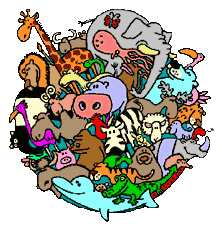 |
On the upbeat, you might be amused by this clever display of animated animal antics, all busily Makin' Bacon. |
(6 Feb 2014) I've been dismayed and saddened by a report (Times, Thu 30 Jan 2014, p34) that the axolotl has become extinct in its Mexican native habitats as a result of pollution etc.
In my ragged-a**ed, balaclava'd, knobbly-kneed, wellie-booted boyhood I was fascinated by pondlife, and would avidly collect tadpoles, efts, ferocious dragonfly larvae and Gaudiesquely-clad caddis-worms. An axolotl would have been beyond my wildest dreams, especially in the Manchester area, but it is enshrined in my email id, as I feel a special affinity with its oddness, ugliness, immaturity and amphibious tendencies.
(1 Nov 2014) Whilst our son was visiting us the other day, he enquired "So, Mum, what'll you be doing next weekend?", to which she replied "Well, actually, Dad doesn't know about that yet".
"She'll be taking all her clothes off in Parliament Square", I improvised merrily. "No", she said, "Trafalgar Square!". And so, at 12 noon on the Saturday, she did exactly that, down to the last stitch.
It was 1 November, World Vegan Day, celebrated annually since 1994, though the (UK) Vegan Society was established way back in 1944. The Trafalgar Square event had been organised by PETA (People for the Ethical Treatment of Animals), renowned for their eye-catching publicity campaigns (sometimes regarded as a trifle OTT). This one involved over a hundred naked (or semi-naked) people of both sexes sprawled (on a large groundsheet) outside the National Gallery and liberally doused in (fake) blood, to symbolise the many millions of animals slaughtered around the world every day for food, clothing, or medical experiments.
My wife Sonia is in the far right-hand corner of the picture in a small group who were to give filmed interviews afterwards. And to view a brief extract from what she had to say, click here ... BBC Radio Berkshire have also broadcast two interviews with her (one by telephone and one live on-air) to express her feelings about the occasion and the cause it represents.
(1 Sep 2018) The Sunday morning service at Cross Street Chapel in Central Manchester will on 30 September be devoted to exploring the perspectives of numerous different religious faiths towards the proper respect and responsibility which humankind should ideally have for living creatures of every kind, whether wild, domesticated or captive.
If you live in Manchester or nearby, you may already have seen the flyers that have been distributed:
The service will be conducted by the Cross Street Minister, the Rev Cody Coyne, and there will be a talk by IFAW (International Fund for Animal Welfare) and readings from Buddhist, Islamic, Jain, Jewish, Quaker, Sikh and Unitarian sources.
Conceived by my wife Sonia and supported by our son Nick who designed the flyer itself, it will without doubt be a fascinating and inspirational experience.
(3 Oct 2018) And so it was! A deeply affecting, enjoyable and successful occasion (please click here to see the Order of Service, and here to hear All Things Bright and Beautiful) – the speakers were excellent and the vegan buffet afterwards was superb (thanks to our friends the Jains, plus the supportive generosity of the Vbites and Unicorn companies, and us Unitarians of course).
Click below for just a few of the many photographic memories.
plus a report in the online magazine Animal Spirit and another in the November issue of The Unitarian.
And click here for an amazing big-screen display in Piccadilly Circus just (2 Oct 2018, his birthday) put up by the Indian High Commission in London. Gandhi it was who when asked what he thought about Western civilisation replied that he thought it would be a good idea...
(12 Mar 2019) My wife Sonia has just been notified by Fay Ganney (as photographed at the Service for Animals organised by Sonia at Cross Street Chapel, Manchester, last autumn) of an event to be held at the House of Commons on 15 May 2019 (Brexit developments permitting, of course), to celebrate the 40th anniversary of the International Fund for Animal Welfare (IFAW), of which Fay is the Legacy Marketing Officer, and Sonia herself a long-time supporter and fund-raiser, now a distinguished invitée at this event. Please keep fingers crossed that it will go ahead.
(13 Aug 2019) If you live in Manchester or nearby, you may already have seen the flyers (once again designed by our son Nick) that have been distributed to publicise this unique event, inspired by my wife Sonia to publicise the benefits that vegetarianism brings to human health, animal well-being, and the small and vulnerable planet on which we all live.
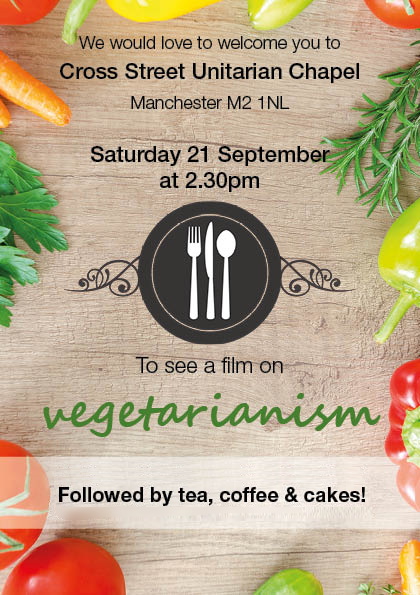
The event is entirely free, non-religious, and hopefully 'food for thought' for us all.
(8 Oct 2019) A very well-subscribed event with an attentive audience and a lively discussion afterwards, followed by an appreciative verdict on Sonia's delicious home-made cake!
Though of course the Cross Street Chapel, and the Unitarian movement generally, don't specifically endorse vegetarianism or veganism, they are of course sympathetic to everything that is beneficial to the health of planet Earth and its inhabitants, whether human, animal or vegetable.
Purely coincidentally, however, the latest issue (5 Oct 2019) of the Unitarian journal The Inquirer features a leading article confronting all these very issues fairly and squarely – including an excursion to Chapter 2 of the Book of Genesis, which describes a pre-lapsarian world in which humans and animals subsisted entirely on plants (tough on plants, but something's got to get eaten – though see below). And jigger me if I hadn't for the first time in my life looked-up the first three chapters (KJV of course) just a few days previously as regards its (metaphorical) account of the Creation, and been amazed at the Creator's strict specification of just this dietary regime.
G K Chesterton, a contrarian's contrarian, in his introduction to The Napoleon of Notting Hill Gate, envisaged (hyperbolically as always) a world of ever-diminishing menu options:
"... Then Tolstoy and the Humanitarians said that the world was growing more merciful, and therefore no one would ever desire to kill. And Mr. Mick not only became a vegetarian, but at length declared vegetarianism doomed ("shedding," as he called it finely, "the green blood of the silent animals"), and predicted that men in a better age would live on nothing but salt. And then came the pamphlet from Oregon (where the thing was tried), the pamphlet called "Why should Salt suffer?" and there was more trouble."
But H G Wells, a century ago, in his extensive tale, A Story of the Days to Come (Ch 1), prophesied the development of (almost) purely synthetic food, delicious, nutritious, but entirely guilt-free. Click here for an up-to-the-minute review of the latest progress in this direction.
(7 May 2022) Sonia at the Manchester Town Hall annex, facing St Peter’s Square, together with a cheery group of fellow campaigners, in a peaceful demonstration against the unnatural use of captive dolphins, orcas, or other ocean-roaming marine creatures, in small tanks for human entertainment, focussing in particular on the local Sea Life aquarium in Trafford Park.








